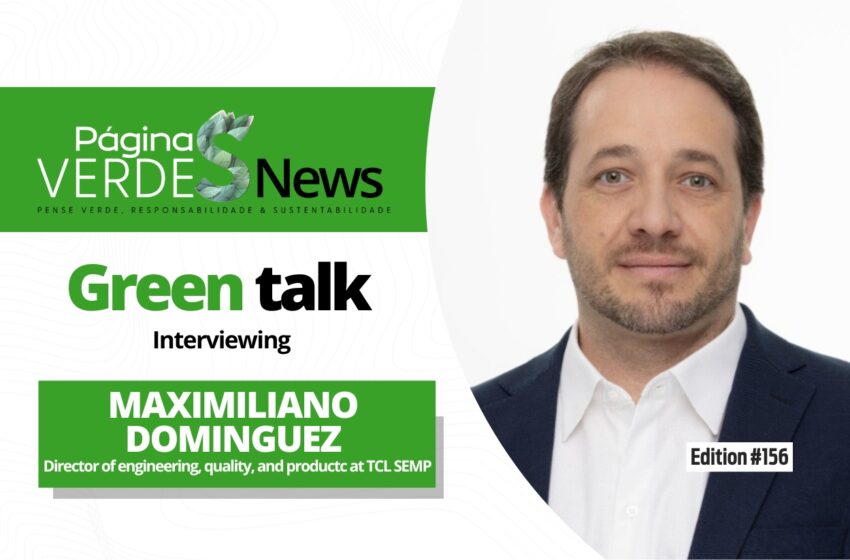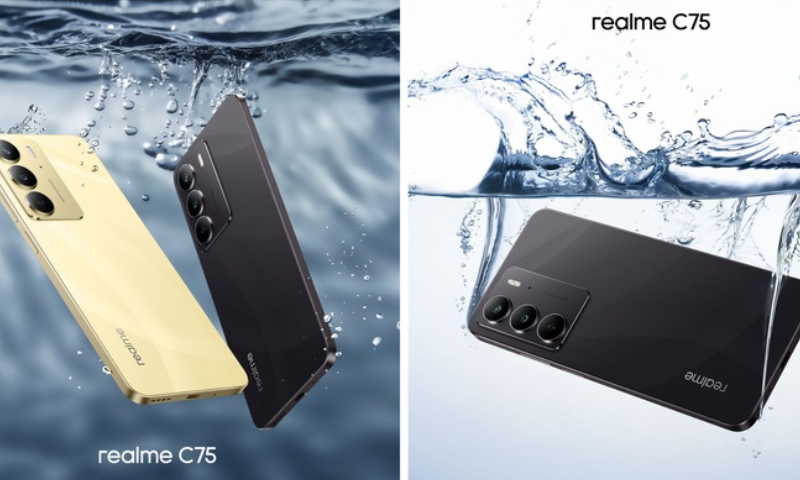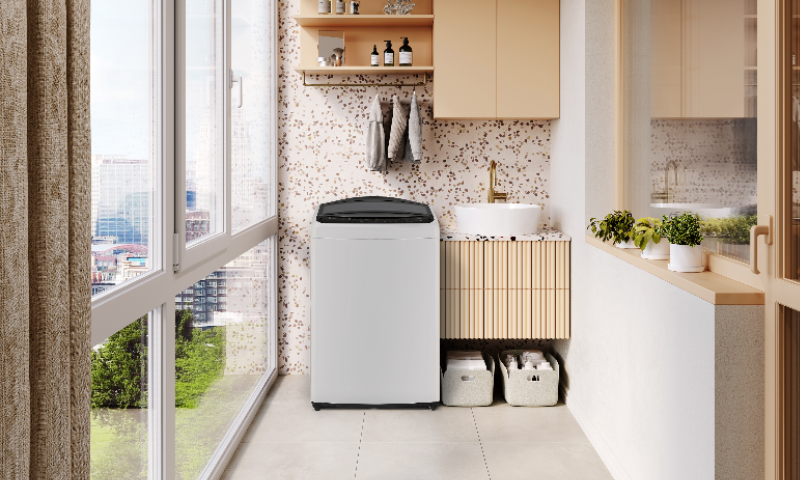
TCL SEMP: THE GOAL IS A GREENER FUTURE
by Stephanie Kohn
At TCL SEMP, ESG principles guide internal and external activities, mapping of sustainability action plans and implementation of initiatives focused on environmental, social and governance issues, so that it is always in compliance with laws and regulations offering products and technological innovation, user services, workplace safety, greener operation, talent development and team building, in addition to responsible purchasing.
Globally, on the environmental front, it outlined goals, including the commitment to reach the carbon peak by 2030 and carbon neutrality in operation by 2050, collaborating to build a sustainable industrial ecosystem. In addition, it has #TCLGreen, a campaign that integrates the ESG concept into all aspects of the company’s business.
In Brazil, the ESG principles also apply to operations as a whole and are part of the business strategy and the company’s commitment to the Política do Aterro Zero (Zero Landfill Policy), monitoring based on indicators such as the Waste Reuse and Recycling Index, as well as the constant search for minimizing impacts on the environment.
And, on the social front, it seeks to implement actions that encourage sports and education, and that promote the employees’ sense of belonging. In terms of governance, it has a structure made up of local working groups and executive and strategic committees, involving the areas, production units and top management to make responsible decisions, guarantee transparency and prevent conflicts of interest.

Maximiliano Dominguez, director of engineering, quality, and product at TCL SEMP, also leads the company’s SGI Department. He has more than 25 years of experience in multinational companies in the consumer goods, electronics, and automotive sectors, with expertise in operations, innovation, B2B and B2C markets and strategic planning. Graduated in Mechanical Engineering, from Centro Universitário FEI, with an MBA in Project and Business Management, from USP, and Management Development Program, from Fundação Dom Cabral, he has international experience in Asia. Between 1994 and 2023, he participated in national and international fairs with a focus on developing and strengthening relationships with suppliers.
PÁGINAS VERDES (Green Pages) – How does TCL SEMP integrate ESG criteria into its business strategy and decision-making?
MAXIMILIANO DOMINGUEZ – Globally, TCL is aware of the importance and urgency of dealing with climate and environmental issues in the technology market. It was with this in mind and in line with the UN’s 2030 global agenda, a plan to achieve a better world for all peoples and nations, that we integrated our initiatives into the #TCLGreen concept. It is a campaign that integrates the ESG concept into all aspects of the company’s business, placing environmental, social and governance issues at the center of our strategy, focusing on creating and maximizing long-term economic, social, and environmental value.
In Brazil, the ESG criteria are part of our business strategy, with initiatives for environmental protection, employee rights and interests, health, and safety, in addition to the participation and development of our internal community, also aiming to reduce the environmental impact and promote a more sustainable manufacturing process. So that these criteria are part of the decision-making process, TCL SEMP has a Sustainability Committee, led by the team that is based at our factory in Manaus (AM), and which is integrated into the engineering and product structure of company, thus ensuring an alignment of strategies.
PV – What are the main goals and commitments in relation to the ESG theme?
MD – We defend the concept of sustainable development and integrate it into the practice of corporate development. We are committed to the Política do Aterro Zero (Zero Landfill Policy), through the development of internal actions that involve public engagement with the environmental cause and the proper disposal of our waste. We have also become consumers of clean energy from a sustainable source.
We follow the legal requirements on the emission of exhaust gases and greenhouse gases, emission of effluents and generation of hazardous and non-hazardous waste. With this, we seek to minimize our impact on the environment and the use of natural resources, establishing a solid internal environmental management system, based on the NBR ISO 14001 standard, which allows us to apply it to a complete range of sectors, scopes and activities of business.
Additionally, in 2021, TCL established a green supply chain finance model globally and recently announced its commitment to carbon neutral operations by 2050, pursuing sustainable product development, green growth, and inclusive ecology.
In this sense, TCL SEMP, aligned with TCL’s global objectives, aims to make its commitments and environmental actions the central points of the strategy in the dialogue with its main stakeholders, so that it can play a useful and effective role in the preservation of the planet. The company has a global sustainability platform, with goals to be achieved by 2025: (I) 18% reduction in greenhouse gas emissions, (II) 27% reduction in water consumption, (III) reduction of 13 % in energy consumption, (IV) 70% reduction in natural gas consumption and (V) 10% reduction in EPS consumption.
SEMP and TCL together offer products that meet or exceed key environmental regulations and are energy efficient. We will continue to improve oversight of the manufacturing process to remove hazardous substances, keep conflict minerals out of the supply chain, prioritize the use of environmentally sustainable packaging, increase volume, and improve the quality of electronics waste management and recycling programs and keep us as members of the Brazilian Association of Recycling of Electronics and Household Appliances (ABREE).
PV – What are the environmental management practices adopted by TCL SEMP to minimize its environmental impact and promote sustainability?
MD – We create initiatives to minimize the environmental impact of our operations throughout the entire production cycle: from product development, from encouraging the use of recycled raw materials and creating durable items, to post-consumption responsibility for products and their appropriate use. environmental treatment.
In the product ecosystem, we were awarded at the main fairs in the segment, such as CES. Among the highlights of the 2023 edition, our C845 QLED Mini LED TV is manufactured using state-of-the-art technology, which reduces impacts on the entire production chain of its components. In air conditioners, we showed solutions with R-32, a fluid that drastically reduces the environmental impacts associated with global warming, in addition to a line of inverter-type refrigerators, with more energy efficiency, and washing machines with very low water consumption.
In addition, all TCL TVs have features, such as eco-mode, that encourage consumers to use products in a more sustainable way, reducing energy consumption. On smartphones, the smart charging feature improves energy efficiency and slows down battery aging by intelligently adjusting the charging pattern according to user habits.
In waste management, we invest in the search for innovative alternatives to traditional packaging materials, using recyclable paper, certified by the Forest Stewardship Council (FSC), in addition to recyclable plastic components in ABS. At our two plants in Brazil, we adhere to the NBR ISO 14001 standard, in which we undertake to comply with a series of legislation and environmental controls to minimize environmental impacts through monitoring and analysis of domestic effluents, atmospheric emissions, external noise and potability of the water for human consumption.
There are also initiatives aimed at reducing the size of packaging and paper consumption in printed manuals. Other initiatives linked to the logistics area also contribute to reducing the carbon footprint, such as reducing the weight and volume of products, optimizing their quantity in containers and, consequently, reducing greenhouse gas emissions generated in the transport of goods.
PV – How does TCL SEMP encourage its suppliers and partners to ensure they are aligned with ESG principles?
MD – We assume responsible governance as an important corporate belief. We build a sustainable supply chain and cooperate with our business partners to establish a shared future for green development. TCL SEMP has clear compliance policies in relation to its entire supply chain. It thus guarantees the alignment of its entire supply chain with its principles and values, these internal policy requirements being mandatory in the selection of commercial partners.
PV – What are the corporate governance mechanisms implemented to guarantee transparency, accountability, and protection of the interests of its shareholders?
MD – Corporate governance is essential in mitigating risks and implementing good compliance practices. The quality of governance is crucial for making responsible decisions, ensuring transparency, and preventing conflicts of interest. From this, to ensure the achievement of business objectives and to be aligned with the best corporate governance practices, TCL SEMP established several internal committees, in which all aspects related to the business are evaluated and managed. The group maintains a high level of corporate transparency, as well as frequent interactions with shareholders and the media through different channels, to ensure that shareholders can obtain comprehensive information in a timely and transparent manner.
PV – What indicators and metrics does the company use to monitor and report its performance in relation to ESG criteria?
MD – TCL SEMP strictly follows national laws and regulations. To minimize impacts on the environment, we have established a robust internal environmental management system, based on ISO 14001, where indicators for waste management and reduction in water and energy consumption were defined, objectives that are correlated to SDG 7 and 13 from the UN. In 2022, for example, we implemented an improvement in our process, reusing two of our main waste – which helped us to increase our performance in the waste management indicator. Monthly, it reaches an average of 99% recycled or reused waste.
Aligned with diversity, equity, and inclusion (ODS 5), we stipulate hours of training per person (Man Hour Training) as an indicator to be met annually, with the main objective of stimulating internal development. With this, we are committed to generating knowledge for everyone equally, which may be professional training or awareness training.
PV – What challenges does the company face in incorporating ESG principles into its operations and how does it deal with them?
MD – Our main challenge has been to find solid engagement so that we can broadly address the ESG principles, with adequate attention and adherence. To overcome this obstacle, we invest in constant communication, reinforcing the importance of sustainability efforts. Also in 2023, we will vigorously practice the mission “Building a sustainable and connected future with advanced technology”, adhering to the #TCLGreen initiatives. With this, we will remain focused on highlighting the positive points of our actions and the company’s priority in achieving, together with its employees and the entire value chain, a greener future.
Source: Eletrolar News Magazine 156
eletrolar.com
eletrolrarshow.com.br





